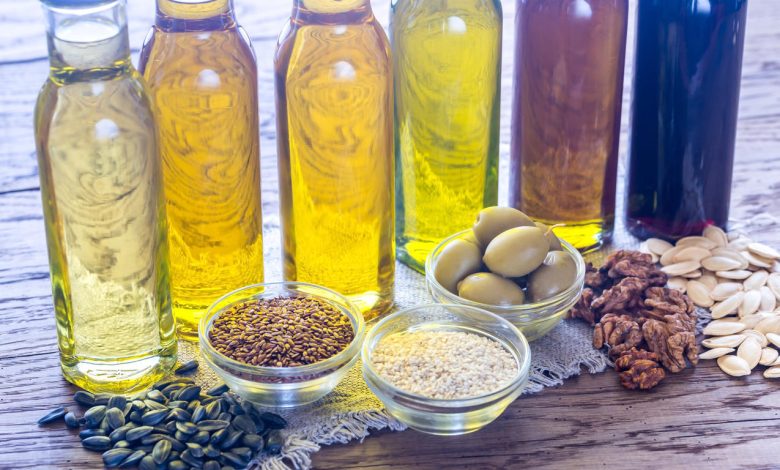Here are the top 7 vegetable oils rich in phytosterols

Cholesterol: This can be a complex subject to understand and address. But there’s one fact you don’t have to worry about: Not all cholesterol is bad for you! In fact, some fats contain compounds known as phytosterols, which are naturally occurring plant sterols that help lower blood cholesterol levels in the body. By using oils rich in these beneficial compounds, we can actually positively influence our overall health and well-being. Which oils contain the most phytosterols? Read on to find out!
Phytosterols: what are they?
Phytosterols are molecules of plant origin whose structure is similar to that of cholesterol, which is a molecule of animal origin. Phytosterols have been studied for their ability to block dietary cholesterol absorption and lower blood cholesterol levels in humans. They are found naturally in vegetable oils, nuts, grains, legumes and seeds.
Recent research has shown that replacing some of the saturated fat in a person’s diet with foods fortified with phytosterols can help lower total cholesterol and low-density lipoprotein (LDL) levels. In addition to blocking the absorption of dietary cholesterol, phytosterols are thought to reduce cholesterol synthesis in the liver by competing with it for absorption into cells.
Phytosterols may also have other benefits, such as reducing inflammation, altering the expression of genes related to fat metabolism, and lowering triglyceride levels. It is important for people wishing to incorporate phytosterols into a healthy lifestyle to know that they should not substitute for other heart-healthy lifestyle changes, such as regular exercise or a balanced diet rich in fruits and vegetables. Also, it is recommended that you consult with a healthcare professional before beginning to take any dietary supplement or adding any new food to your diet.
Here are the 7 oils rich in phytosterols.
Corn oil:
Corn oil is one of the most popular cooking oils in many parts of the world due to its mild flavor and high smoke point, which allows it to be used for a wide variety of dishes. Its high phytosterol content with 1360mg/100g also makes it an excellent choice for those looking to increase their intake of these important heart-healthy compounds. It has thus been suggested that regular consumption of corn oil can help lower cholesterol levels and improve overall cardiovascular health.
Sesame oil :
Sesame oil is another widely used ingredient in cooking. It is just as high in phytosterols with 1210mg/100g as corn oil, but has a distinct nutty flavor that can be used to enhance certain dishes, depending on what you are preparing. Sesame oil has long been recognized for its medicinal properties and is believed to aid in digestion, skin health, joint pain relief and more recently research has suggested it may have beneficial effects on cholesterol levels due to its concentration of phytosterols.
Safflower oil:
Safflower oil isn’t as popular for culinary use, but it still provides an abundance of phytosterols of 620mg/100g, which make it an ideal supplement for those looking to improve their cardiovascular health. Recent studies have shown that regular consumption of safflower oil may reduce LDL (bad cholesterol) levels while increasing HDL (good cholesterol) levels in the body, which may benefit people at risk. heart disease or stroke.
Colza oil :
Rapeseed oil has also become increasingly popular in recent years due to its slightly sweet taste and its tendency to not go rancid too quickly like some other oils. It’s also much lower in saturated fat than many other types of cooking oils, making it healthier overall, while still providing 500mg/100g of phytosterols, making it another good option if you’re looking ways to naturally support your cardiovascular system without limiting your diet too much or taking medication.
Grape seed oil:
Grapeseed oil has long been praised for its beneficial antioxidants that help protect against oxidative stress and premature aging, but did you know it’s also full of phytosterols? At 350mg/100g this may not seem like much compared to other products, but even small amounts can have beneficial effects when paired with a healthy lifestyle over time.
Olive oil :
Olive oil contains a variety of phytosterols 310mg/100g with antioxidant properties that help protect against oxidative damage caused by free radicals. It is also an excellent source of monounsaturated fatty acids which help maintain healthy cholesterol levels and improve heart health. Studies have shown that olive oil may help reduce inflammation and improve blood sugar levels in people at risk for diabetes or metabolic syndrome.
Peanut oil :
Finally, there is peanut oil – another type of oil commonly used in cooking where a higher smoke point is needed, such as for frying etc.












